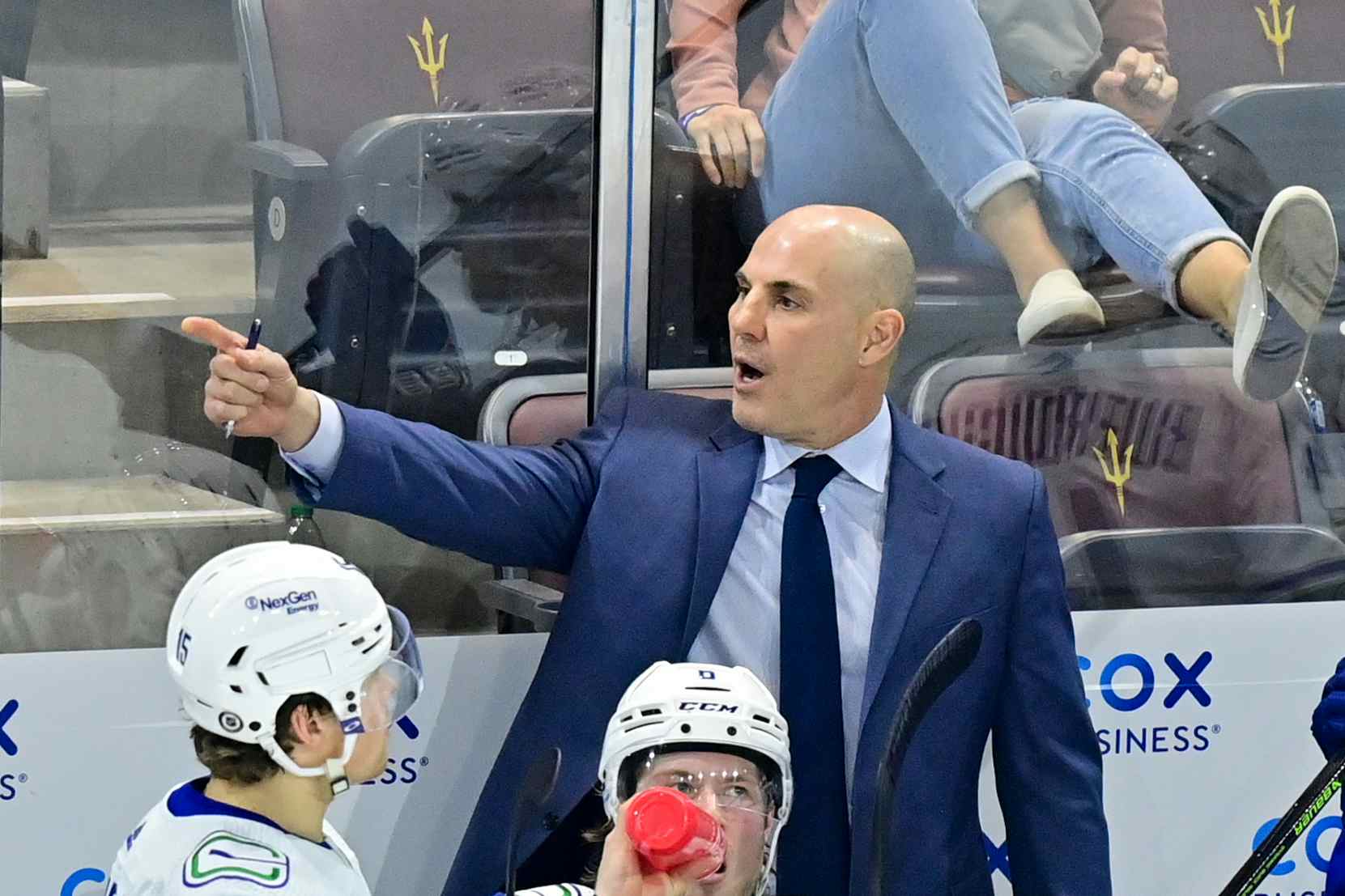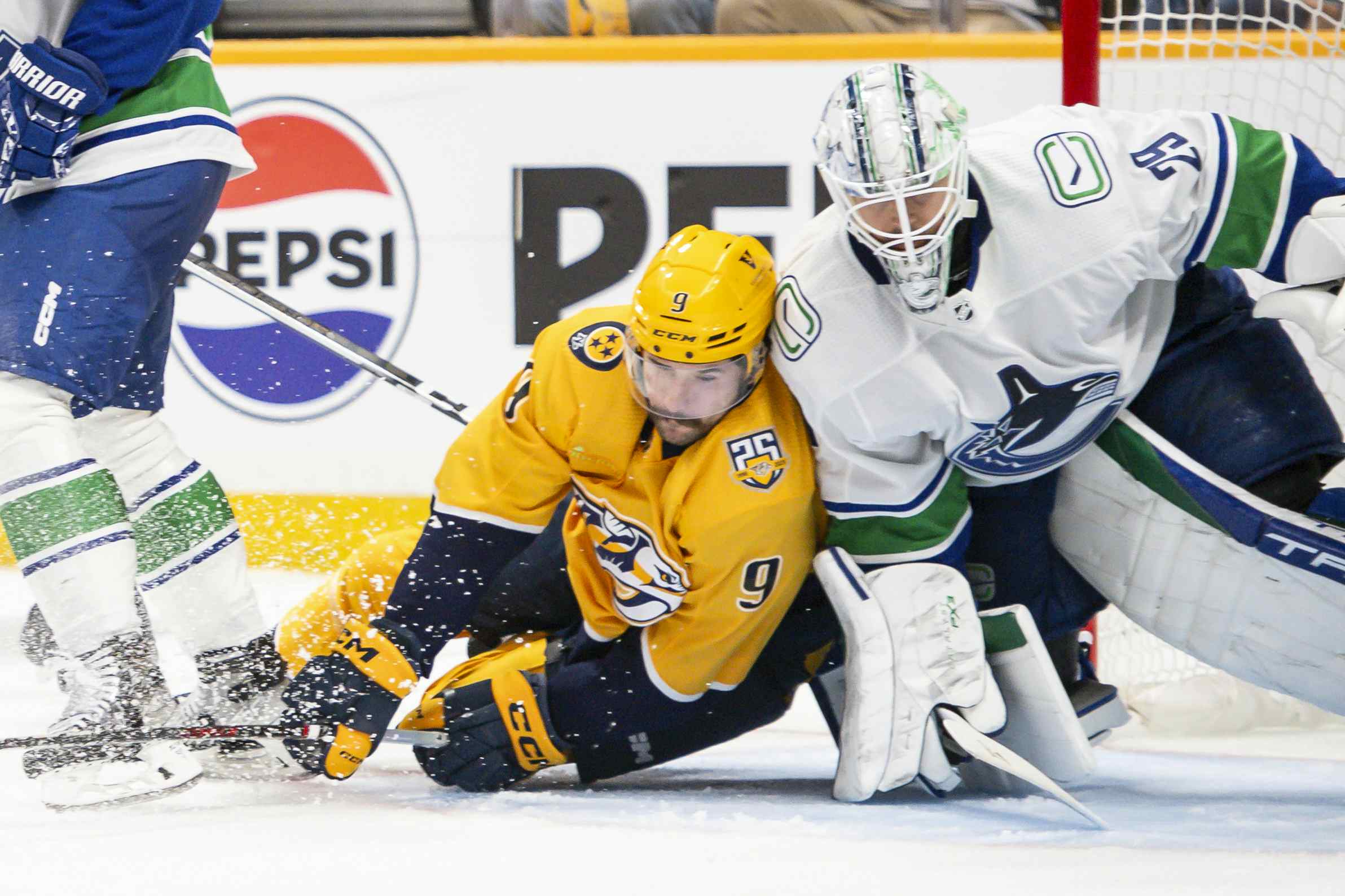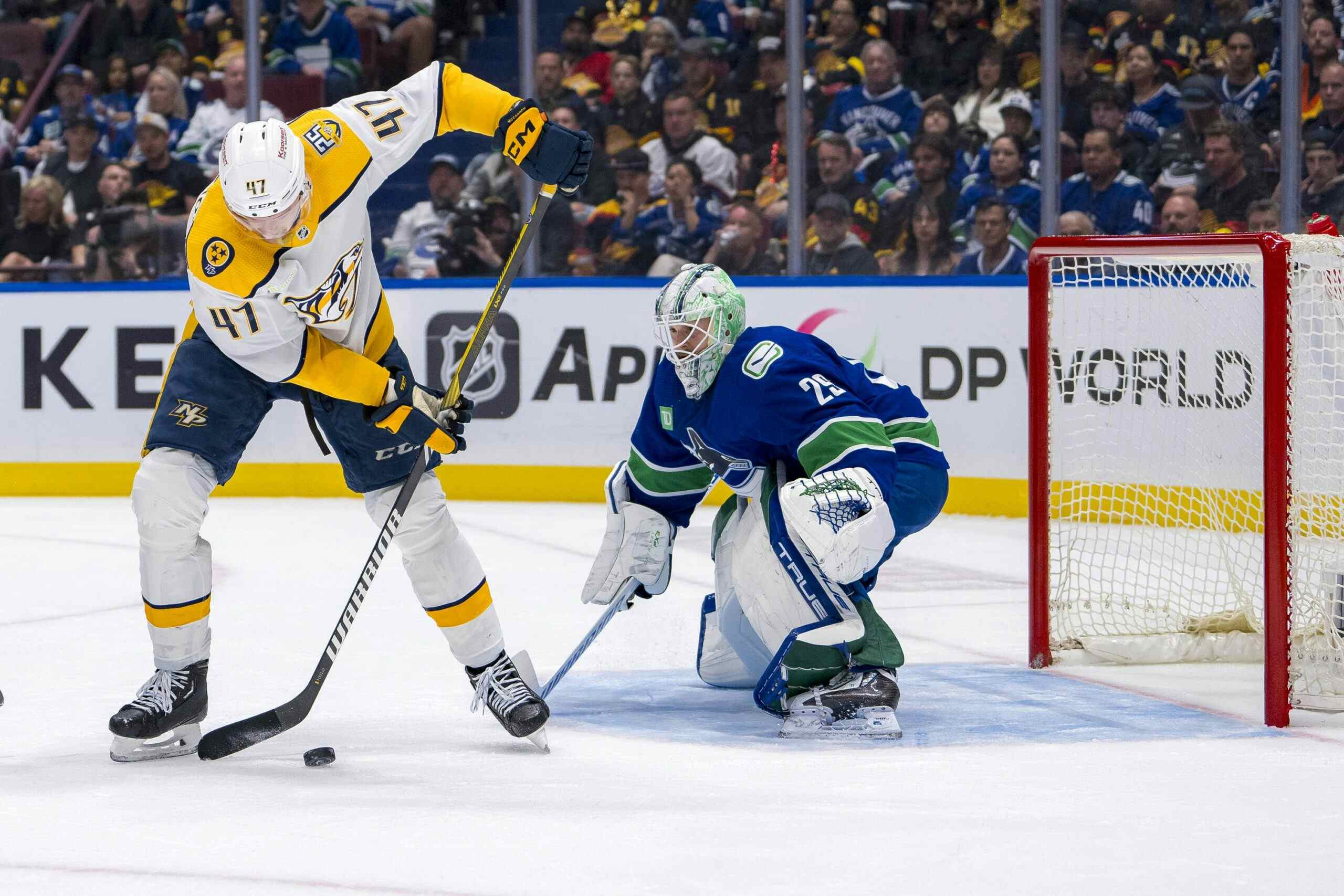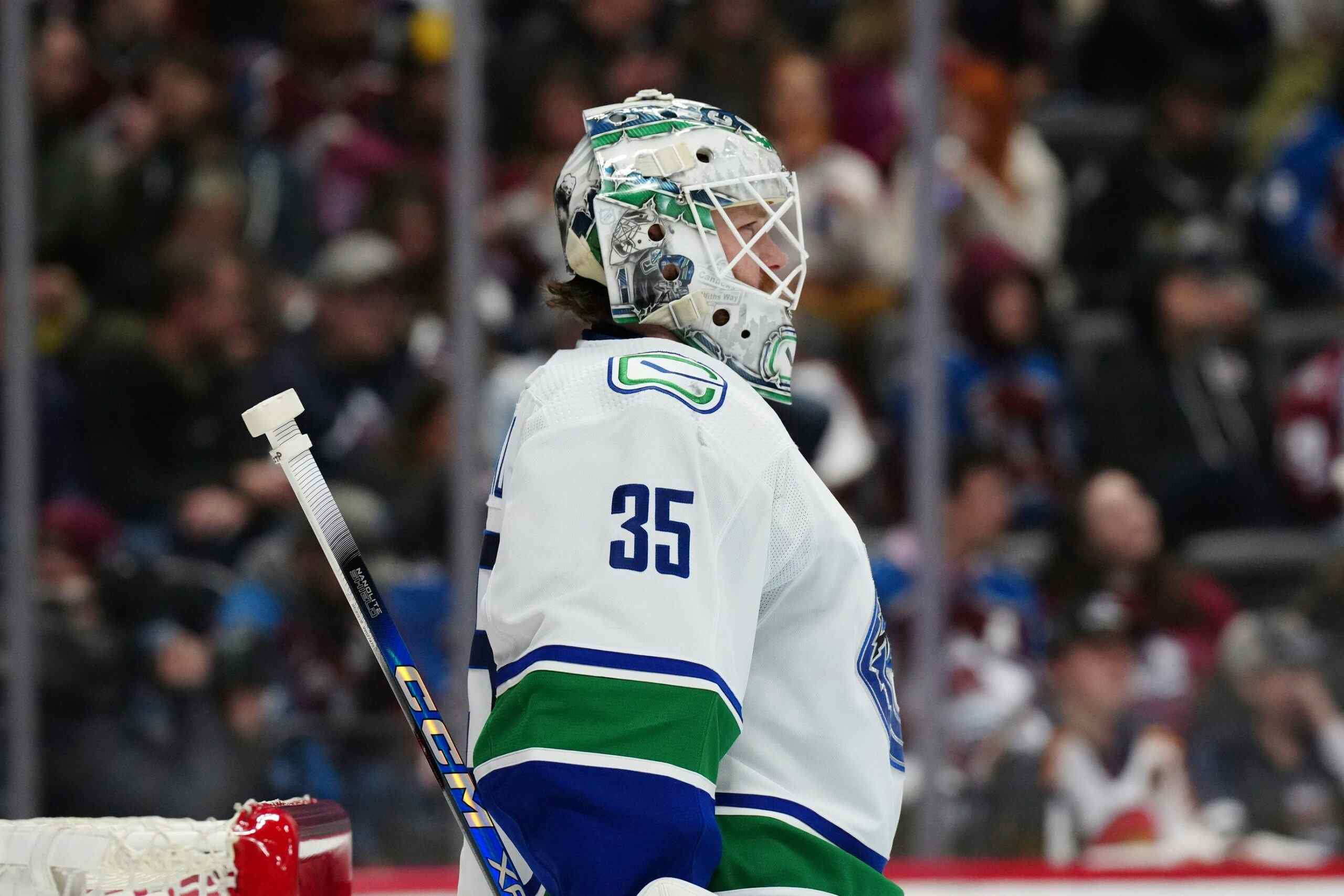Cory Schneider says his Game Six Cramp in Chicago in 2011 was the result of “Anxiety”
Back in 2011, the Canucks dressed Cory Schneider over incumbent netminder Roberto Luongo for a critical game six in the Mad-House. You might remember it, since it remains the biggest single story in Vancouver sports history.
We all know what came next: the Canucks dominated the Blackhawks throughout the game, and Cory Schneider made some excellent saves but also some really bad decisions handling the puck. Ultimately he left the game when he cramped up following a converted Michael Frolik penalty-shot goal that tied the game. Vancouver went on to lose in overtime, before "slaying the dragon" in game seven.
In talking about that contest with Cory Schneider on Wednesday, Jason Botchford got Vancouver’s presumptive number one goaltender this season to make a scintilating admission. According to Cory Schneider, when he cramped up in Chicago in game six it wasn’t dehydration, it wasn’t anything physical at all in fact – rather he was dealing with anxiety that forced him from the game.
Read on past the jump.
Here’s the Cory Schneider quote that Botchford’s piece is largely based around:
“Physically, we tried everything,” Schneider explained.“Hydrating. Electrolytes. This and that. I was taking everything known to man and drinking gallons of water before the game. But I could still feel it.“I realized, it can’t be hydration because I’m on top of that.“Sometimes, outwardly, you’re not anxious but inside you can be anxious. That anxiety can cause you to tighten up.”Schneider had to tweak his mental approach and, over time, re-learned how and when to do something that seems so natural: breathing.“I tried to do certain things to make sure it never happens again.Some of it was mental things, and then there was breathing, relaxing I had to do. Things that take your mind off of those trigger points. It was important to overcome and get good at so I don’t have those issues going forward.I talked a lot to my agent Mike Liut, who has played, and he was the one who first reminded me I have to breathe. You forget to breathe and it can cause you to get tight. Then, you don’t even realize what’s happening until it’s too late.”
The first thing I thought of while reading that quote actually, was Elliotte Freidman who wrote the following paragraph in his weekly 30 Thoughts column in the immediate aftermath of that game:
"I know Schneider’s had cramps before, but here’s the question the Canucks must ask both him and themselves: Did the stress of the situation get to him? Honest answer essential."
So on the one hand, you’ve got Cory Schneider admitting that "anxiety" got to him in a big pressure moment, which presumably will open him up to the same sort of "choker" and "basket case" jabs that have been thrown at Luongo throughout his Canucks tenure. On the other hand: you’ve got a wonderful display of maturity here.
You see, it appears to me that Cory Schneider did exactly what Freidman thought was so important to do: he evaluated himself honestly and decided that in fact the stress had got to him and did impact his physical health in a critical moment.
So while I’m sure there’s a crowd of folks out there talking up the importance of keeping Luongo in the wake of Schneider’s admission, I’m going to go ahead and applaud Schneider for an honest self-assessment. I also appreciate that he had the courage to say that he underwent a process of learning coping techniques (like controlled breathing) as a method of hardening himself mentally. That shows self-confidence, in my view.
Clearly Schneider believes he’s a better goaltender and NHL player for that learning experience, and I’d tend to believe him.
All that being said, as Cory Schneider gets set to assume the mantle as the Canucks’ uncontested number one starter, there are some lingering questions about his readiness for the job and his ability to handle a starters workload. These lingering questions have nothing to do with mental-toughness.
From a statistical standpoint, for example, Schneider’s numbers are dazzling across the board so far in his career. Yet one is right to be concerned about his lack of track record making back-to-back starts, or the fact that he’s yet to face even 3000 shots at the NHL level. Of course, those are concerns that have more to do with opportunity – and his never being given the chance to start full-time in the NHL – as opposed to his talent as a goaltender.
I’d quite frankly expect Schneider’s ridiculous .938 sv% to regress over the course of an upcoming shortened season (hard-hitting analysis, I know, I know). This is partly because his short-handed save percentage last season will prove to be completely unsustainable, and also because it’s a whole different ball-game in terms of workload and opposition scouting when you’re a starting NHL goalie.
There’s little doubt in my mind that Cory Schneider is going to be a well above-average netminder in the NHL and even quite possibly a star. In terms of factors that introduce uncertainty into my evaluation: his lack of track record, the inevitable regression, how Schneider handles the increased workload of being an everyday starter, and how he deals with the opposition looking to exploit his weaknesses like they haven’t previously, are bigger concerns than the fact that he dealt with "anxiety" in a big-game situation one time, and learned from it.
Recent articles from Thomas Drance





